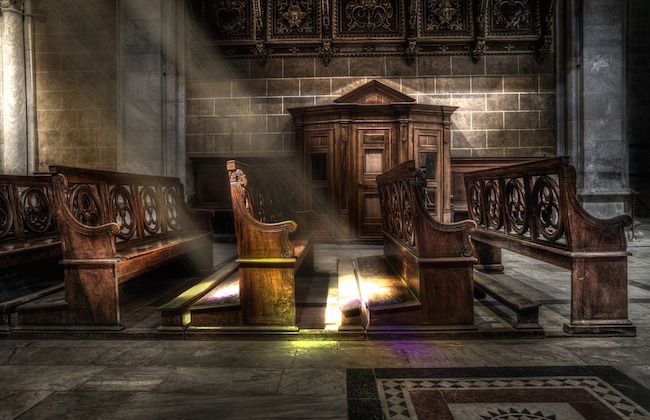. . . And Then the Holy Spirit by Fred Sanders for The Gospel Coalition
There are three persons in the Trinity, all coequal, coeternal, and coessential. There can hardly be a deeper Christian instinct than the one that prompts us to do equal justice to the Father, Son, and Holy Spirit.
But alongside this instinct, there is also a deep wisdom to recognizing a certain order in the way we deploy Christian teaching on the Trinity—and especially on the Holy Spirit as the third person of the Trinity. In fact, there is a long and healthy tradition in Christian doctrine of letting pneumatology, the doctrine about the Holy Spirit, fall into place after certain other matters have already been established. In this tradition, the main lines of the Christian confession are established first without a focus on the Holy Spirit—and nothing goes wrong on account of this temporary postponement of pneumatology. But when, in a later move, reflection on the Spirit is added to those main lines, a world of greater depth opens up, and the full glory of trinitarian soteriology shines forth. Nothing changes, but everything is better.
Let me show this by a few key examples.
1. The Nicene Creed
At the end of the creed, having elaborately affirmed that they believe in the Son, the fathers of Nicaea added the unimpressive phrase “and in the Holy Spirit.” Period.
But, 56 turbulent years later when this creed was retrieved and expanded at Constantinople 381, this paltry third article blossomed forth into the confession we recite in the Nicene Creed today:
I believe in the Holy Spirit, the Lord and giver of life, who proceeds from the Father, who is worshiped and glorified together with the Father and the Son, who spoke through the prophets.
What shall we say happened when the creed of Nicea, with minimal explicit pneumatology, added the rich pneumatology of 381? Trinitarianism came into its own. More truth was declared. The whole statement became richer, fuller, deeper. You might say the fathers of Constantinople took a step back. It might be worth saying here that the movement I am describing only works if there is some pneumatology in the first step; I won’t provide any examples of theology that altogether omit any recognition of the Spirit. These would be harder cases; they might run afoul of orthodoxy or of correctness. You can’t say nothing about the Spirit. What I’m drawing attention to is the tradition of initially saying little about the Spirit, and then later saying much.




